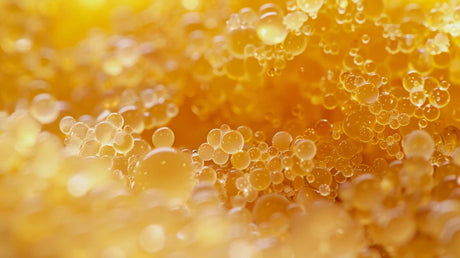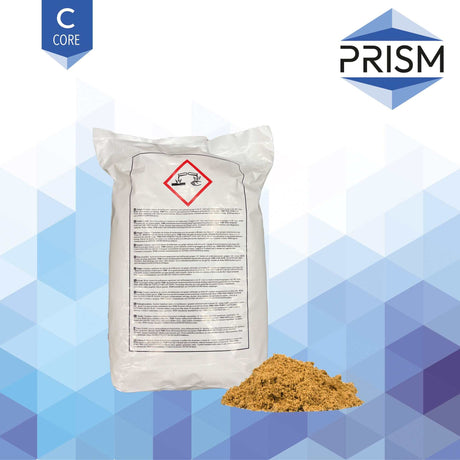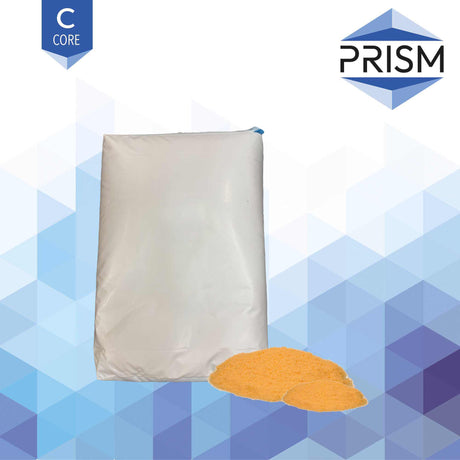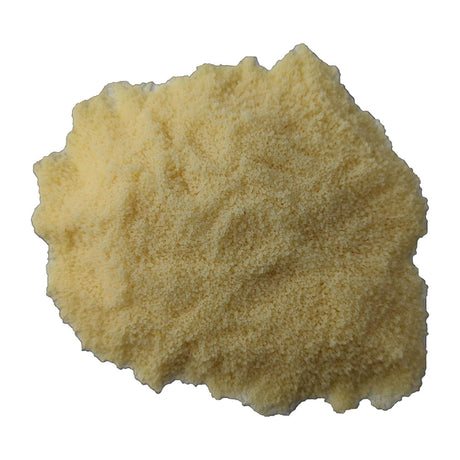
Purity Perfected: Transforming Water with Precision Ion Exchange Resins
FM-MRDI-25L-C PRISM CORE RANGE : Mixed Bed DI Resin - 25 Litre Bag
From £105.00Unit price /UnavailableIndion 222 Na F Softening Resin 25 Litres
£61.10Unit price /UnavailableSunResin SEPLITE Monojet SC3100 Ion Exchange Resin Low Fouling 25 Litres (SC3130)
£79.65Unit price /UnavailableResin Cleaner (concentrated) 5 Litre
£16.05Unit price /UnavailablePurolite C100E Softening Resin 25 litres
£72.80Unit price /UnavailablePurolite A860S Anion Resin 25 Litres (Organics)
£263.60Unit price /UnavailablePurolite NRW3240 (prev. NRW37) Nuclear Grade Mixed Bed Resin DI Resin 25 litres
£273.00Unit price /UnavailablePurolite A502PS Anion Resin 25 Litres - Replaces A500P (Organics)
£260.00Unit price /UnavailablePurolite MB400 DI Resin 25 litres
£161.55Unit price /UnavailableSPECTRUM Softening Resin (SRSO-RESIN-25L) 25 Litres
£125.00Unit price /UnavailablePurolite A520E Nitrate Selective Resin 25 Litres
£321.75Unit price /UnavailablePure PC002 Softening Resin, 25 Litres
£58.50Unit price /UnavailablePurolite A850S Anion Resin 25 Litres (Demineralisation with Organics)
£288.60Unit price /UnavailableSPECTRUM SRDI Deionisation (DI) Resin 25 litres
£186.00Unit price /UnavailableERDI-RESIN-25L : SPECTRUM Economic ION-X Mixed Bed DI Resin - 25 Litre Bag
From £170.00Unit price /UnavailableFM-MRSO-25L-C PRISM CORE RANGE : Softening Resin - 25 Litre Bag
From £84.50Unit price /UnavailableIndion NSSR Nitrate Selective Resin 25 LItres
£267.15Unit price /UnavailablePurolite C107E Dealkalisation Resin Heavy Metal Removal 25 litres
£253.50Unit price /UnavailablePurolite C100H Cation Resin 25 litres
£78.00Unit price /UnavailableSPECTRUM Water Softener and metal Remover Resin 25 litres
£312.00Unit price /UnavailableResin Cleaner (concentrated) 1 Litre
£5.55Unit price /UnavailablePurolite IP4 Inert Resin 25 Litres
£171.30Unit price /UnavailablePurolite A400 Anion Resin 25 Litres (Demineralisation)
£234.35Unit price /Unavailable
Ion Exchange Resin Overview
GAPS Water Treatment: Your Premier Supplier of Ion Exchange Resins
Elevate your water treatment process with our high-quality ion exchange resins from renowned brands like Purolite, Indion, PRISM, SPECTRUM, and SunResin. These resins are essential components in water filtration systems, designed to remove impurities, contaminants, and hardness-causing minerals.
Choose from a wide range of ion exchange resins tailored to your specific needs, including cation exchange resins for hardness removal and anion exchange resins for nitrate and sulfate removal. Our resins are renowned for their performance, durability, and regeneration capabilities.
Benefit from the expertise of GAPS Water Treatment, as our team can provide personalized guidance and support to select the ideal ion exchange resin for your application. Our commitment to quality and customer satisfaction ensures you'll receive the best possible water treatment solution.
Contact us today to learn more about our ion exchange resins from Purolite, Indion, PRISM, SPECTRUM, and SunResin, and experience the difference in your water quality.
Why Buy From GAPS Water Treatment?
Discover Why GAPS Water Treatment is Your Top Choice for Water Filtration product solutions
Frequently Asked Questions
Ion Exchange Resins
What are ion exchange resins?
What are ion exchange resins?
Ion exchange resins are specialized materials used in water treatment systems to remove impurities, contaminants, and unwanted ions from water. They work by exchanging specific ions in the resin for ions in the water, enhancing water quality and ensuring safe and effective water purification.
How do ion exchange resins work?
How do ion exchange resins work?
Ion exchange resins function through a chemical process where select ions in the water (like calcium, magnesium, or nitrates) are replaced with ions on the resin. For example, in a softening process, calcium and magnesium ions are swapped for sodium or potassium ions, reducing water hardness and preventing scale buildup.
What are the benefits of using ion exchange resins?
What are the benefits of using ion exchange resins?
Using ion exchange resins offers several advantages, such as:
- Improved water quality: Removes unwanted ions, ensuring cleaner and purer water.
- Efficiency: Reduces hardness, preventing scale build-up in plumbing and appliances.
- Cost savings: Prolongs the lifespan of water treatment systems and household appliances, lowering maintenance costs over time.
- Customisation: Offers solutions for various applications, such as softening, demineralisation, and contaminant removal.
What types of ion exchange resins are available?
What types of ion exchange resins are available?
Ion exchange resins come in different types to suit various applications, including:
- Cation exchange resins: Remove positively charged ions (e.g., calcium and magnesium, which cause water hardness).
- Anion exchange resins: Remove negatively charged ions (e.g., nitrates, sulfates, and organics).
- Mixed bed resins: Combine both cation and anion resins for applications like deionisation.
- Specialized resins: Target specific needs, such as heavy metal removal or nitrate selectivity.
What are ion exchange resins used for?
What are ion exchange resins used for?
Ion exchange resins are widely used in water treatment processes, including:
- Water softening: Removes hardness-causing minerals, preventing scale buildup.
- Demineralisation: Eliminates dissolved salts to produce ultra-pure water.
- Nitrate and sulfate removal: Ideal for treating drinking water or industrial water.
- Heavy metal removal: Used in industries to filter out harmful metals from water.
- Deionisation: Produces high-purity water for pharmaceutical, scientific, and industrial applications.
How do you regenerate an ion exchange resin?
How do you regenerate an ion exchange resin?
Regeneration restores the resin’s ion exchange capacity after it becomes saturated with unwanted ions. For example:
- Cation resins are regenerated with a salt solution (sodium or potassium chloride).
- Anion resins may require sodium hydroxide or a similar chemical.
Regular regeneration ensures the resin’s performance and longevity, making it an efficient option for long-term use.
How long do ion exchange resins last?
How long do ion exchange resins last?
The lifespan of an ion exchange resin depends on factors like water quality, usage, and maintenance. With proper care and regular regeneration, resins can last several years. However, over time, performance may decline, resulting in the need for replacement.
Are ion exchange resins safe to use?
Are ion exchange resins safe to use?
Yes, ion exchange resins are safe when used correctly. They are carefully manufactured to meet standards for water treatment applications, including those for drinking water. Always follow the manufacturer’s guidelines for handling, storage, and usage.
Where can I buy high-quality ion exchange resins?
Where can I buy high-quality ion exchange resins?
You can find premium ion exchange resins for various applications at GAPS Water Treatment. They offer brands like Purolite, Indion, PRISM, SPECTRUM, and SunResin, known for their performance and reliability. With expert advice and fast delivery, GAPS ensures you receive the perfect resin for your needs.
How do I choose the best ion exchange resin for my application?
How do I choose the best ion exchange resin for my application?
Selecting the right ion exchange resin depends on your specific water treatment goals. For instance:
- Use cation resins for softening.
- Use anion resins for nitrate or sulfate removal.
- Opt for mixed bed resins for deionisation needs.
If you’re unsure, the experts at GAPS Water Treatment can offer tailored recommendations based on your requirements.

























